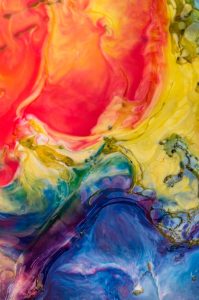Song of our Bodies; Site of our Blessing

The one who rises gracefully before us,
in this moment, is the Shulammite women.
We might listen avidly or uneasily or both
for we have heard of the lyrics of her song.
A song of sexual desire,
of longing and invitation and fulfilment,
a song explicit in expression.
Though we have heard this song often rearranged as a waltz of allegory,
a box step rhythm of God with Israel,
or of Christ with the church
or a lyrical song of God and the individual soul,
in its first reality it is not structured as waltz .
It is at one moment vivid and heated as flamenco,
at another fluid as cool, watered, birdsong.
The Shulammite woman stands up to sing
and we know from the first notes,
we cannot turn to allegory until we invite the song’s rich and joyful earthiness into our hearts.
This is the song of our bodies,
the song of physical creation,
the song of the breathed-on world that God has called good.
This is the song of our bodies, the site of our blessing.
And this is the song of eros.
The woman stands up to sing and we have heard her words read earlier and we see her now before us in the beauty from which she sings. Another voice joins hers,we can hear it coming up over the hill behind the trees,
the voice of her lover who responds,
two voices, reciprocal,
mutual,
delicate and strong.
This is not a light song,
not a casual song,
not a careless song.
It is a song of delight and self-confidence and celebration,
each person gathering armfuls of images
and tossing them out into the waiting hands of the day.
This is not a careless song but one of a love as strong as death.
The Shulammite woman sings
and her words pour out on us in sensuous image,
in ripe fruits and rich lilies,
in roses and pomegranates,
in the bending of short strong apple trees when they are full,
in the soft exuberance of doves and gazelles.
She pours out on us possibility.
This is a song of eros,
what Audre Lorde describes as a deeply female and spiritual resource within all of us,
a powerful force that ”arises from our deepest and nonrational knowledge.
“[It] functions in several ways:
as a power that emerges from sharing a meaningful pursuit with another person;
as a capacity for joy that “heightens and sensitizes and strengthens” all experience;
as a refusal to accept powerlessness
and . . . as a deep participation in the feeling of others”.
By the end of the song, we are singing too,
longing to hear more,
punctuating the lovers’ words with our own
just as do those singers in the text.
Oh you are sweet, let us drink you.
You make us higher than any wine.
Turn, turn, oh Shulammite
Turn, turn; turn before us
That we might gaze upon you.
The Shulammite singer stands up to sing while the proverbial words on the good and virtuous wife lie open on the table. She sings of what has been left out.
She sings in a voice that is rare in our scriptures,
a woman possessed of an autonomy we see seldom in these pages. (This last line is a paraphrase of Renita Weems’ thought.)
She sings to us of her own strength and her own desire
as she invites the response of her lover.
In between the notes we hear our song too.
We hear the song of our own longing,
our own confidence (whether owned or lost),
our own creative and relational energy,
our own “deep participation in the feelings of others”.
We hear our own eros.
The song of our bodies,
the song of our loves,
the song of all that is graced and gracious in the physical world.
This is an excerpt from a longer sermon on the text Song of Songs 2:8-13 & 8:6-7.
Quote from Elizabeth Gandolfo, 252 http://fortresspress.com/product/power-and-vulnerability-love-theological-anthropology

Sounds wonderful; I’d love to know which readings you chose.
Beautiful, Catherine. Two years ago, I preached exclusively on the Song of Songs during Creation Time.